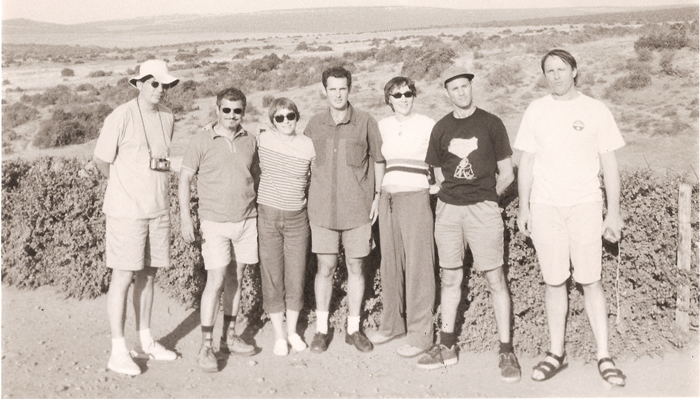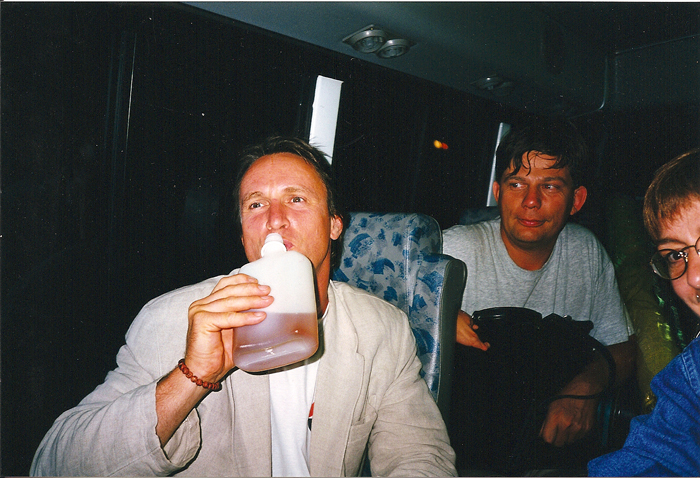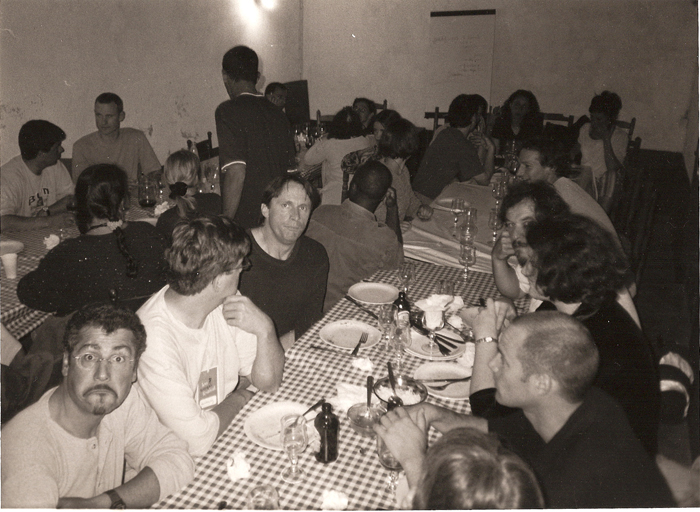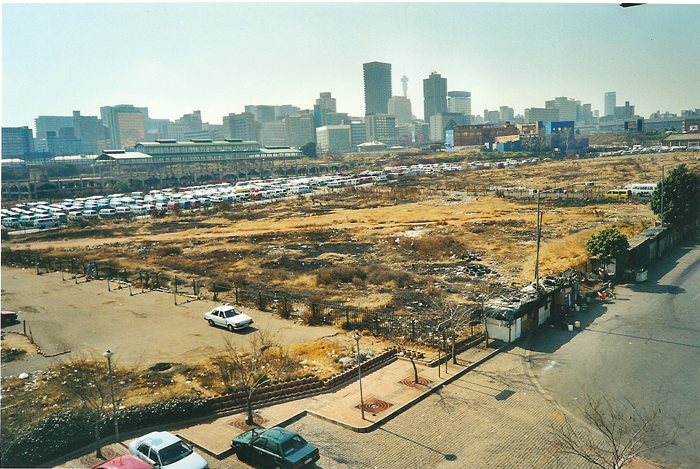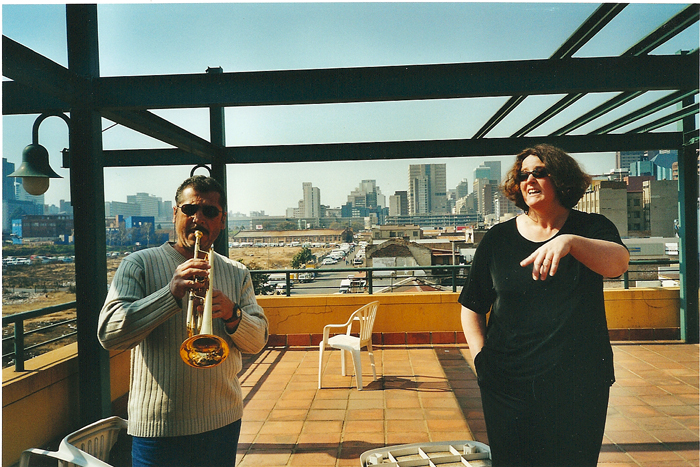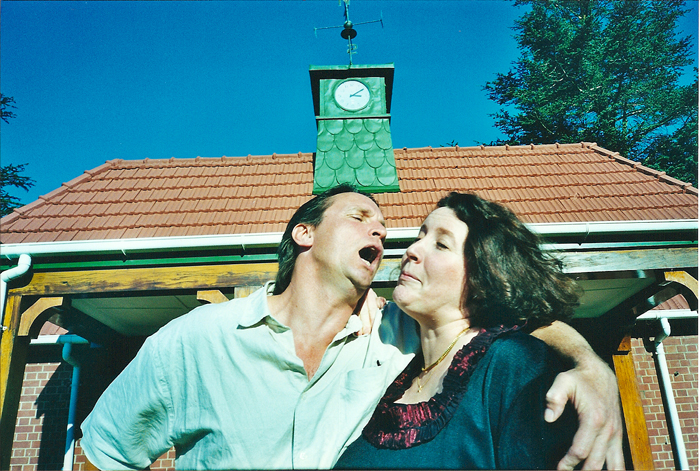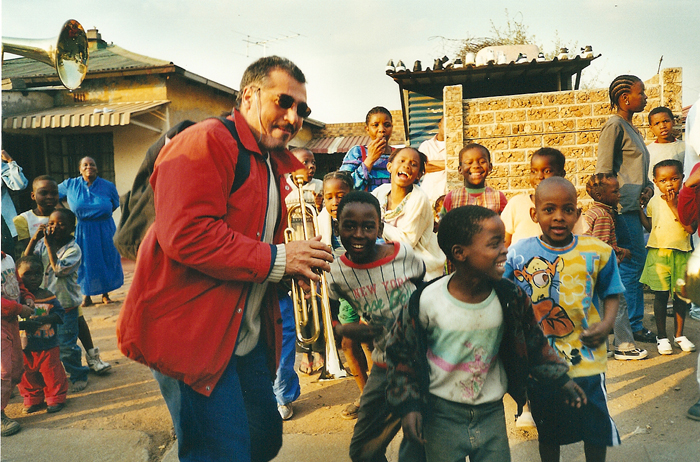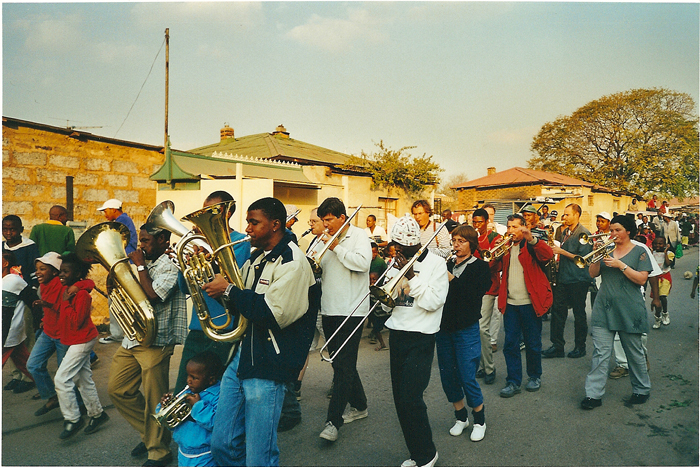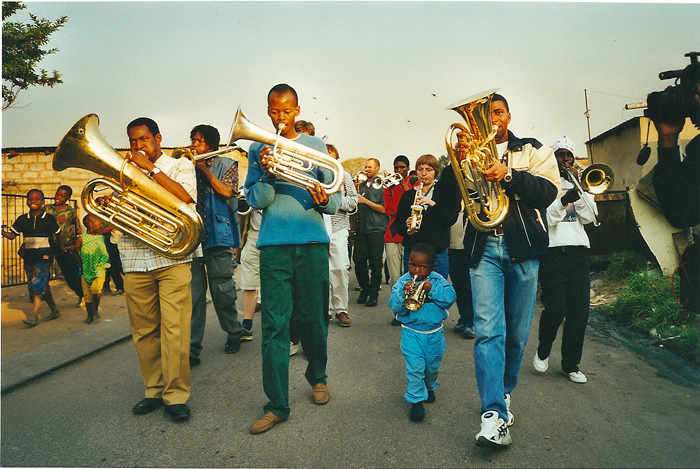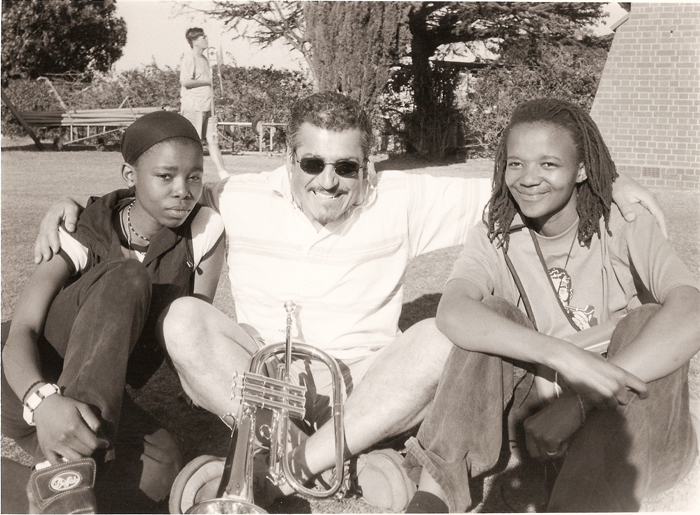| South Africa and the Reunion Island |
|
THE REUNION ISLAND (July 1st and 2nd 2000)
Initially, the tour was to be South Africa only. Since there were only 3 dates foreseen, we looked around for other possiblities in the region. An e-mail blitz to all potential takers bore fruit in the shape of Vincent Colin, director of the Theater du Grand Marché in Saint-Denis. He in turn spoke about us to Chandra Pelle of the company Komela, and programmer of the Festival Tempo festival, and they quickly decided to invite us. It's a puppet festival which is gradually programming more street theatre, hence our presence. There are a large number of companies and the quality is high. A variety of countries are represented : The Reunion Island, France, England, Czechoslovakia, Japan... On the other hand, the city of Saint Leu is rather small and we are surprised that it hosts such a large festival. We give two evening performances by the sea. The first is quite unusual in that it takes place in the rain. We are concerned that there might not be a large crowd, as the people of the island tend not to stay out late. However, Komela ,who organise the festival, and who are well known in the town have organised a parade involving the locals, and this boosts our audience. When the show begins there is a large contingent of children, but they are well-behaved and kept out of mischief by the adults. Night falls quickly and spotlights have to be used since there's hardly any street lighting We have learned several Creole words which proves to be a huge success with the audience: - " Fem out who ": "shut your mouth." - " E I the mayor ": "I am the boss". In spite of the rain, the public stays with us until the end of the show. Word of mouth has got round in time for the next evening's show and there is a large audience. And it's not raining this time. The show is very beautiful, with the sun setting behind the palm trees. An Indian man from New Delhi wants to buy the show. Several people have come all the way from Saint-Denis to see the show (about 100 km away) and that's very gratifying. A great leaving-party with all the other artists, in a very pleasant canteen. At the end of the meal we get out out our instruments and improvise a short performance. We learn afterwards that the festival finished on a sad note as the director of Komela (Baguett ) had a heart attack during one of the performances. SOUTH AFRICA
All the organisation of the tour is taken care of by Bénedicte Motte, Catherine Blondeau's assistant at the Institut Fraçais d'Afrique du Sud ( IFAS). The tour divides into two parts: 2 shows at Grahamstown and 1 in Johannesburg.
Standard Bank Art Festival ( Grahamstown): July 7 and 8, 2000 A small town in the south of the country which is about an hour's drive from Port Elizabeth. For 15 days, the town is taken over by countless theatre companies. It's reputed to be the biggest theatre festival in the southern hemisphere. Bizarrely, this festival is organised by a bank (the Standard bank). The 2 shows take place in a space which is a little removed from the main centre of activities (the town is too noisy for us), in a school and its out-buildings. The audience here is full of real festival-goers who have come especially to see us. The Tragic Flute goes down very well, and is punctuated by fits of laughter in the audience. We've rarely had such a reaction. At the same time we are disappointed to see that the spectators are almost exclusively white.
Johannesburg: July 12, 2000 Since we have a few days free before the performance, Bénedicte Motte suggests that we meet a local brass band, the one based in the township of Alexandra. Alexandra is one of the poorest districts of Johannesburg with an exclusively black population. Our guide is a marvellous woman, Mrs Bongi Dhlomo-Mautloan, who is engaged in trying to bring her district into contact with the wider world, and who is in regular contact with the IFAS. The amateur brass band was formed by the local priest of the district, who had the idea of trying to steer youngsters away from crime through music. Things happen quickly with these young musicians. They play us some pieces, then it's our turn; finally we decide to go and play in the street. And it is there that we experience the most powerful moment of our journey: hundreds of people come out of their small houses and follow us as we play. We are surrounded by swarms of dancing children. No hostile reactions in this neighbourhood. We decide to invite all the musicians to come to see our show the next day, and to pay their taxi expenses. The situation changes for this last performance: we have gone from a prestigious international theatre festival to a performance in the middle of the black district just 50m from a shantytown. The pretext for this performance is the world conference Urban futures which is happening just next to our performance space. The IFAS organisation is excellent even given a few technical problems. Just as in the Reunion Island, we fear that we may not have a large audience because the area is not very lively (we're playing on a weekday, at midday). As is often the case, the audience is late in arriving but finally gathers round our décor of suitcases. According to the IFAS people, our audience is quite unusual in South Africa in that it's very mixed, about 50-50 black and white. To our great surprise, the public is much less enthusiastic than in Grahamstown. It is necessary to add that Mozart and classical music in general is totally foreign to the black population (a black journalist from the most important daily newspaper in Johannesburg asks me how to spell Mozart!). The show is difficult because we feel that the spectators are interested in but puzzled by this new style of music. The more bawdy sections are as usual very successful, as well as the moments where we use people from the audience. At the end of the show, we call the various musicians from the Alexandra township brass band on stage along with their instruments, and an improvised concert begins. Large African women begin to dance... Taking leave of our musician friends is difficult. We say to each other that we'll meet again soon in Paris or in Johannesburg. Whatever happens, we'll stay in touch. Thanks to all this travelling (7 countries visited between May and July, 2000), new international projects are in prospect: - A collaboration with the brass band of Alexandra to enable them to come to Europe. - A collaboration with the company Avanti Display from Manchester. Project for a joint performance which will be presented during the summer of 2001 in front of the National Theatre in London, in the Manchester festival Streets Ahead , in Chalon dans la Rue and in the festival L'Humour des Notes in Hagenau, France. - A commission from the Barbican Centre in London to work on Wagner's music. Wagner's Ring Cycle is to be performed there in 2002 by the London Synphony Orchestra and they would like to have a more off-the wall version of Wagner to present alongside the serious version. And, thanks to our various contacts, there are possible future tours of The Tragic Flute in India, Norway, Indonesia, and the Seychelles. |
